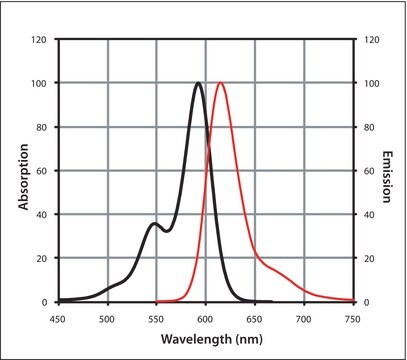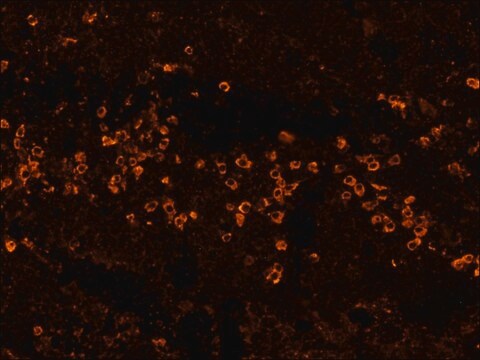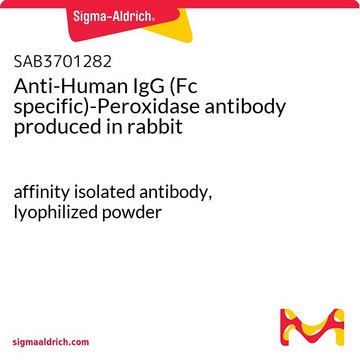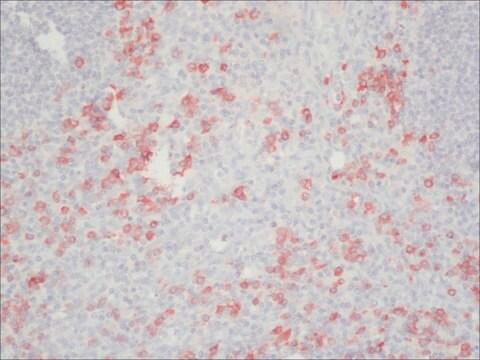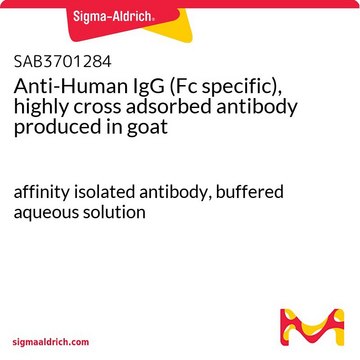Kluczowe dokumenty
SAB4600130
Anti-Human IgG (H+L), highly cross-adsorbed, CF™ 633 antibody produced in donkey
~2 mg/mL, affinity isolated antibody
About This Item
Polecane produkty
pochodzenie biologiczne
donkey
Poziom jakości
białko sprzężone
CF™ 633 conjugate
forma przeciwciała
affinity isolated antibody
rodzaj przeciwciała
secondary antibodies
klon
polyclonal
Postać
buffered aqueous solution
reaktywność gatunkowa
human
stężenie
~2 mg/mL
metody
flow cytometry: 1-10 μg/mL
immunocytochemistry: suitable
immunohistochemistry: suitable
indirect immunofluorescence: 1-10 μg/mL
fluorescencja
λex 630 nm; λem 650 nm
Warunki transportu
dry ice
temp. przechowywania
−20°C
docelowa modyfikacja potranslacyjna
unmodified
Opis ogólny
Specyficzność
Immunogen
Cechy i korzyści
Postać fizyczna
Uwaga dotycząca przygotowania
Informacje prawne
Oświadczenie o zrzeczeniu się odpowiedzialności
Nie możesz znaleźć właściwego produktu?
Wypróbuj nasz Narzędzie selektora produktów.
Kod klasy składowania
10 - Combustible liquids
Klasa zagrożenia wodnego (WGK)
WGK 2
Temperatura zapłonu (°F)
Not applicable
Temperatura zapłonu (°C)
Not applicable
Certyfikaty analizy (CoA)
Poszukaj Certyfikaty analizy (CoA), wpisując numer partii/serii produktów. Numery serii i partii można znaleźć na etykiecie produktu po słowach „seria” lub „partia”.
Masz już ten produkt?
Dokumenty związane z niedawno zakupionymi produktami zostały zamieszczone w Bibliotece dokumentów.
Nasz zespół naukowców ma doświadczenie we wszystkich obszarach badań, w tym w naukach przyrodniczych, materiałoznawstwie, syntezie chemicznej, chromatografii, analityce i wielu innych dziedzinach.
Skontaktuj się z zespołem ds. pomocy technicznej

